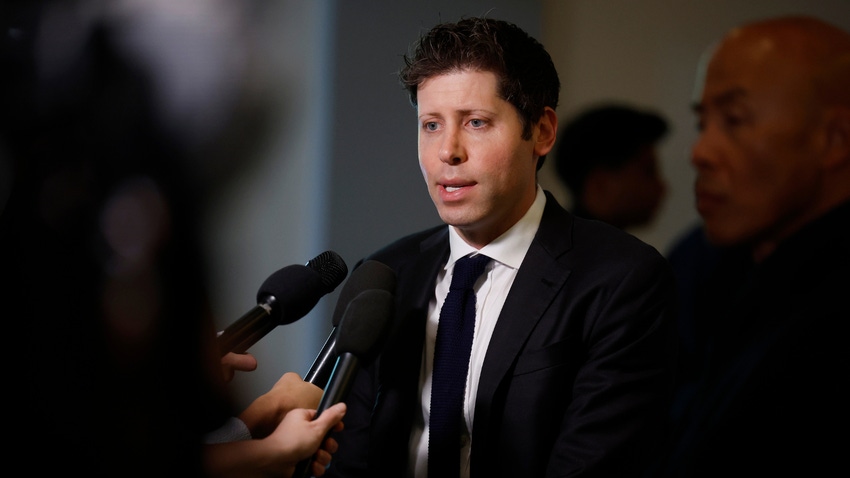AI News Roundup: Sam Altman on Why He Returned to OpenAI
Also – Anthropic cuts prices and two states take on generative AI

AI Business brings you the latest news and insights from across the AI world.
To keep up to date with coverage of all things AI, subscribe to the AI Business newsletter to get content straight to your inbox and follow the AI Business Podcast on Apple and Spotify.
Sam Altman explains why he returned to OpenAI
In an interview with The Verge, OpenAI CEO Sam Altman said that the morning after he was fired, some board members called him and asked if he would be up to talking about it.
“My immediate reaction was sort of one of defiance. It was like, ‘Man, I’m hurt and angry, and I think this sucks’,” he told the publication.
And then “pretty immediately, I started thinking about, like, obviously, I really loved the company and had poured my life force into this for the last four and a half years full time, but really longer than that with most of my time,” he said.
“And we’re making such great progress on the mission I care so much about, the mission of safe and beneficial AGI. But also the people here and all of the partners who have taken such big bets on us, and Mira (Murati, the CTO) and the leadership team and all of the people here who do incredible work. It took me a few minutes to snap out of it and get over the ego and emotions to then be like, “Yeah, of course I want to do that,” he continued.
Altman declined to explain why he was fired and also did not talk about the reported breakthrough nicknamed Q* (Q-star). Altman was fired by OpenAI and rehired within five days after the board faced investor pressure and nearly all employees threatened to quit.
Anthropic cuts prices
OpenAI rival Anthropic reportedly cut its per-token pricing for Claude 2.1, its large language model, due to competition from large companies and open source models, according to VentureBeat.
“As more players have entered the market, it has just accelerated things,” Matt Shumer, CEO and co-founder of OthersideAI, told the publication. Rivals such as DeepMind put pressure on closed-source large language model developers like OpenAI and Anthropic to lower costs.
But Shumer also said the “proliferation of open source” also is forcing Anthropic’s hand. Open source models such as Mistral and Poro makes sophisticated AI more accessible so companies have more choices, each with its own advantages.
OpenAI recently announced lower prices for GPT-4 Turbo, the latest version of GPT-4, that is cheaper to run and capable of handling 16 times more text.
Two states take on generative AI
California Gov. Gavin Newsom’s office released a generative AI report that analyzes the risks and high-risk use cases of generative AI, highlights the importance of deploying secure, controlled pilots and potential uses to improve accessibility to government services.
The governor also instructed state agencies and departments to do a joint risk analysis of potential threats to the state’s critical infrastructure from generative AI. They also will provide training for state government workers to use state-approved generative AI tools.
The state will work with Stanford University and the University of California, Berkeley to evaluate the impact of generative AI on the state. California and the two universities will host a joint summit in 2024 on generative AI and its impact on the state and its workforce.
Meanwhile, Oregon Gov. Tina Kotek announced the creation of an AI Advisory Council to make recommendations about how generative AI can be used across the state government.
The council must develop a recommendation action plan within six months from its first convening, with a final version submitted to the governor’s office within 12 months.
The plan will cover maximizing the potential benefits of AI as well as ethical implementation and adoption, with “thoughtful governance and standards” to mitigate risk and address issues including privacy, ethics and equity. The goal is to give Oregon “clear usage policies” for the acceptable use of AI tools.
The council will consist of 15 members including the state chief information officer, the state chief data officer, someone from the state’s racial justice council, the state Department of Administrative Services cultural change officer, among others. The president of the state Senate as well as the Speaker of the House will each appoint one member.
“Artificial intelligence is an important new frontier, bringing the potential for substantial benefits to our society, as well as risks we must prepare for,” Kotek said in a statement.
Read more about:
ChatGPT / Generative AIAbout the Author(s)
You May Also Like


.jpg?width=700&auto=webp&quality=80&disable=upscale)
.jpg?width=700&auto=webp&quality=80&disable=upscale)
.jpg?width=700&auto=webp&quality=80&disable=upscale)
.jpg?width=300&auto=webp&quality=80&disable=upscale)
.jpg?width=300&auto=webp&quality=80&disable=upscale)
.jpg?width=300&auto=webp&quality=80&disable=upscale)
.jpg?width=300&auto=webp&quality=80&disable=upscale)
.jpg?width=300&auto=webp&quality=80&disable=upscale)